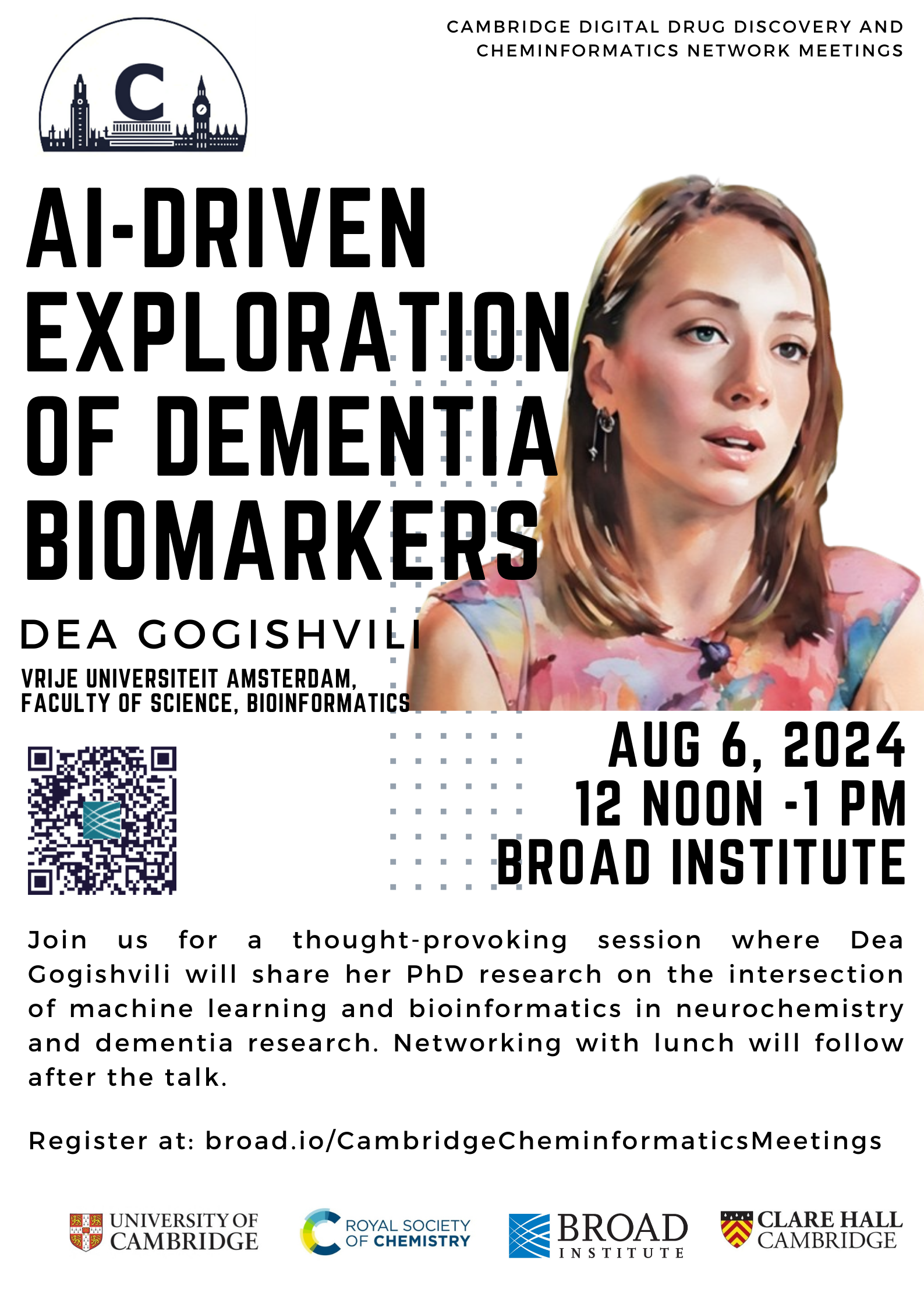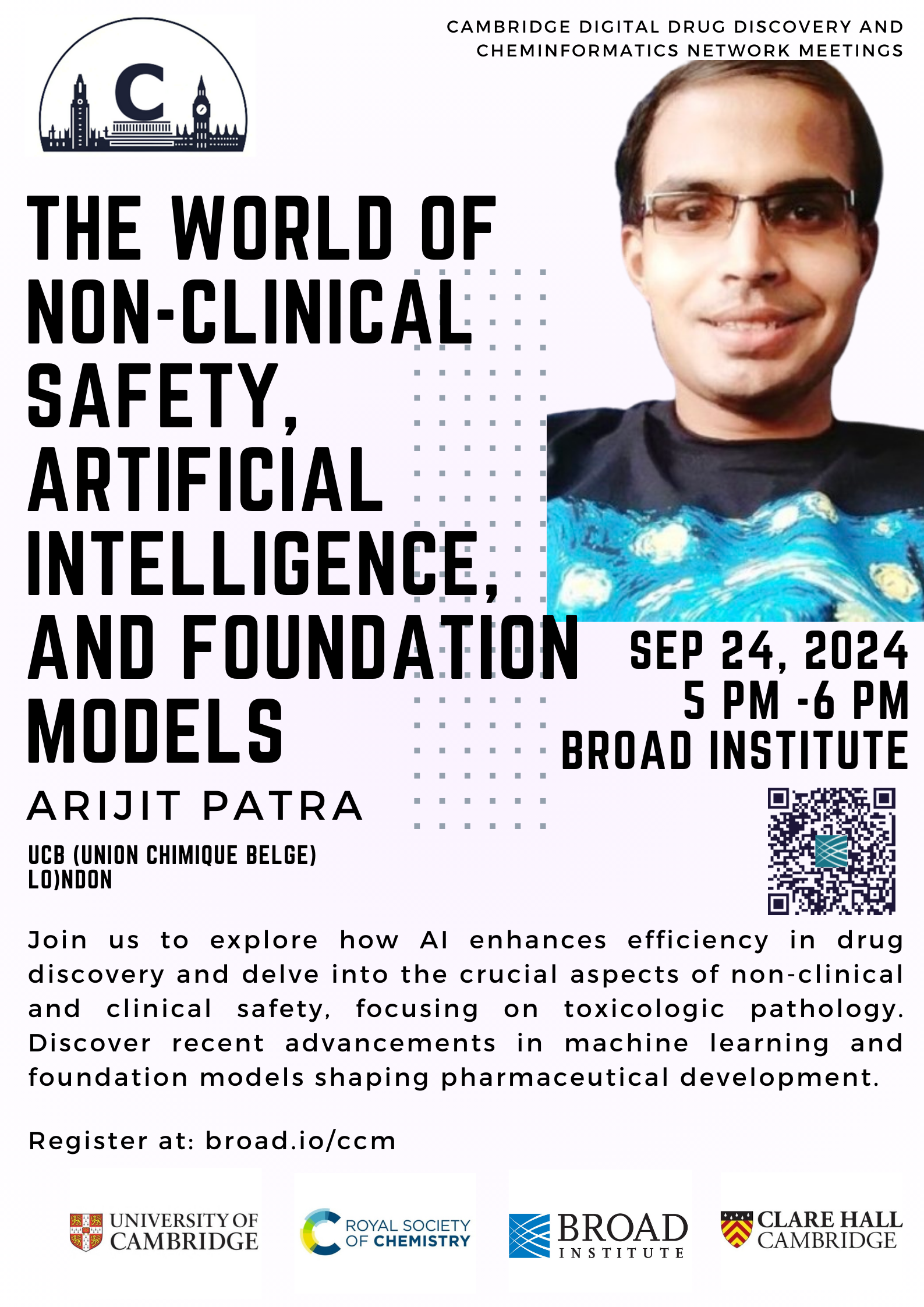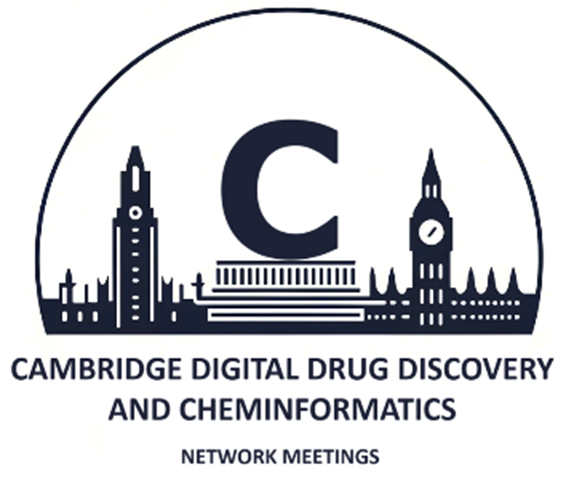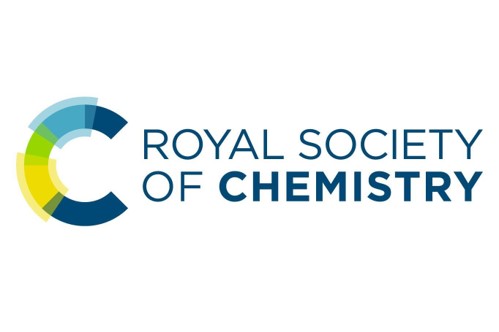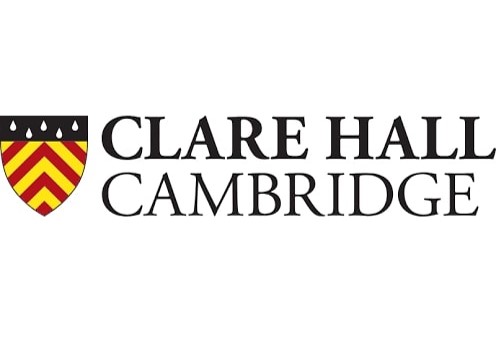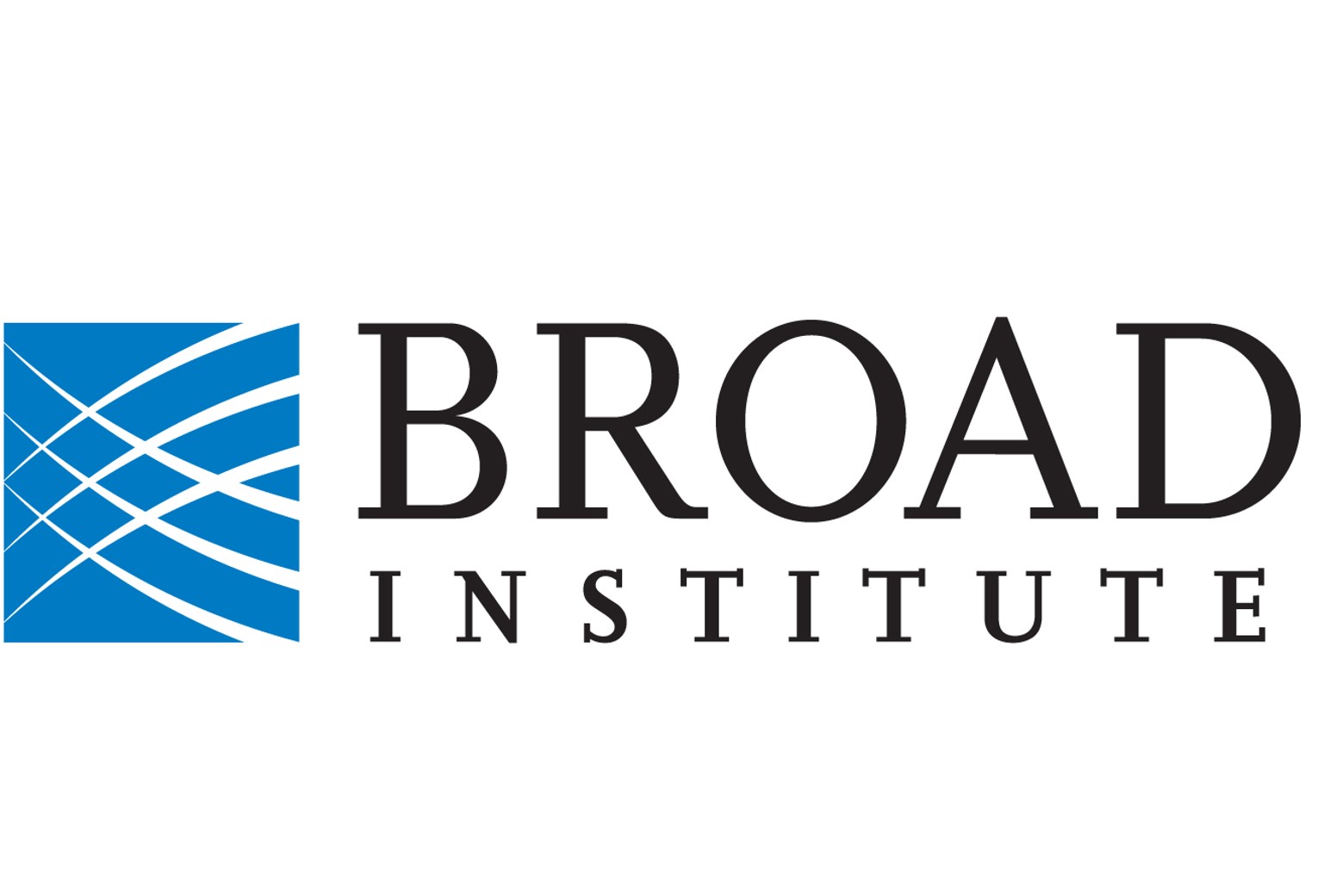US East Coast Digital Drug Discovery and Cheminformatics Network Meetings
Here you can find information about our upcoming meetings, which are free to attend and open to all. The next session is on May 30th 5pm ET. The sessions are held in person in
Philadelphia and online.
For the meeting, please register here: https://forms.gle/8UpVNUTQgAb2ncNz8
Presentation Topic:
TBC
Presenter:
TBC
Session Schedule:
- 5 PM - 6 PM: Presentation and Workshop
Dates for 2024-25 Club Meetings:
Next Meeting:
For personal attendance, please arrive a bit in advance and email meetings@understanding.bio for a guest entry pass. The online link will be shared with registered attendees two days before the event.
Stay Connected:
Would you like to stay informed about our events and other relevant information from the bioinformatics and cheminformatics areas? A newsletter (~1/month) of events, vacancies, and other relevant information from in and around the cheminformatics/computational drug discovery area is shared by our counterpart UK meetings. Please e-mail Andreas Bender (ab454 at cam.ac.uk) if you like to stay informed. All newsletters are now archived and can be linked via DrugDiscovery.NET
Call for Speakers:
Speaker slots are available! If you would like to present at this or a future meeting, please get in touch with Srijit Seal at seal@broadinstitute.org.
Many thanks to sponsors:
If you would like to sponsor cheminformatics meetings please do get in touch at meetings@understanding.bio
Context of the Work
The field of cheminformatics is significant in advancing drug discovery; its use of machine learning and artificial intelligence significantly streamlines the identification and optimization of new drug-like compounds. Currently, the landscape is marked by rapid technological advancements in AI yet fragmented research efforts and limited data sharing hinder progress between the US and the UK. The proposed initiative aims to bridge this gap by fostering collaboration between leading research entities on the US East Coast (where the meeting is hosted) and the UK (where many of the speakers will be based). By leveraging the complementary strengths of these research communities, the project seeks to build a more integrated and innovative approach to cheminformatics research.
Our collaborative network hypothesis extends beyond the acceleration of novel drug development; it posits that such a network will serve to develop the field of cheminformatics itself. By developing an environment where data and ideas flow freely between the two countries, we anticipate a synergistic effect that will yield new models, algorithms, and approaches. These innovations will not only apply to drug discovery but also extend the boundaries and possibilities within the broader field of cheminformatics.
Objectives
The intersection of cheminformatics and drug discovery represents a frontier of scientific innovation, where the application of computational techniques has the potential to revolutionize our approach to drug discovery. Despite its promise, the field is often characterized by siloed research efforts, with significant breakthroughs remaining isolated within either the academic or industrial spheres. This initiative is uniquely positioned to dismantle these barriers, creating a conduit for collaborations between the cutting-edge research environments of US and the UK. This initiative not only seeks to integrate these isolated efforts but also aims to harness the rapid pace of technological advancements, transforming them into actionable insights and methodologies that can be applied across the board.
We wish to bring together researchers from various organizations: from academia, industry, and startups based in the UK to discuss the ideal role of cheminformatics and machine learning in biological science. Besides gaining an understanding of the interdisciplinary nature of this field, postgraduate students and early career researchers will also gain an awareness of the field. Overall, we will:
- Establish a Collaborative Network: To create a sustainable partnership that facilitates the exchange of knowledge and resources between the two research hubs.
- Promote Interdisciplinary Integration: By inviting participation from fields such as machine learning, data science, biology, and pharmacology, we aim to foster a culture of interdisciplinary research. This will enable the tackling of complex problems from multiple perspectives, enriching the cheminformatics field with fresh insights and methodologies.
- Empower the Next Generation: Through targeted workshops and mentorship opportunities, we intend to equip postgraduate students and early-career researchers with the skills and knowledge necessary to contribute meaningfully to the field. This includes not only technical training but also fostering a mindset of innovation and collaboration.
- Champion Open Science: By advocating for and implementing principles of open access to data and findings, the initiative will contribute to the democratization of cheminformatics research, making it more accessible to researchers worldwide, regardless of their institution's resources.
- Develop a Shared Cheminformatics Network: To learn about the diverse computational tools and datasets employed by the participants, enhancing the efficiency and scope of drug discovery research.
- Foster Innovation in Drug Discovery: To identify and prioritize new therapeutic targets and compound development strategies through collaborative workshops and discussions.
For example, here are some example topics we aim to discuss:
- Exploring symmetries and inductive biases, clustering and dimensionality reduction, self-supervised learning, and geometric deep learning from a Machine Learning perspective.
- How can data-driven discovery methods be applied in basic and applied science?
- Can artificial models push to revise traditional conceptions of drug discovery research?
Outcomes and Future Directions
The initiative's success will be measured by immediate outcomes such as joint publications and grant applications and by its long-term impact on the cheminformatics community. These efforts are anticipated to lead to:
- Establishment of a robust collaborative network
- Establishment of a cheminformatics newsletter
- Development and dissemination of shared cheminformatics datasets
- Initiation of joint research projects addressing critical challenges in drug discovery
- Joint publications and conference presentations
- Grant applications for further research
Future directions may include expanding the collaborative network, developing educational programs, setting up a Cheminformatics Platform at the Broad Institute, and establishing biannual meetings to sustain the initiative's momentum.
We greatly appreciate the financial support from the Royal Society of Chemistry (RSC) in publicizing the conference, and we encourage participants to join the membership and scholarship in the RSC.More details here.
We also appreciate administrative support from Clare Hall, University of Cambridge. Candidates looking for prospective masters and PhD admission in the University of Cambridge can find more details here.
Past Events
